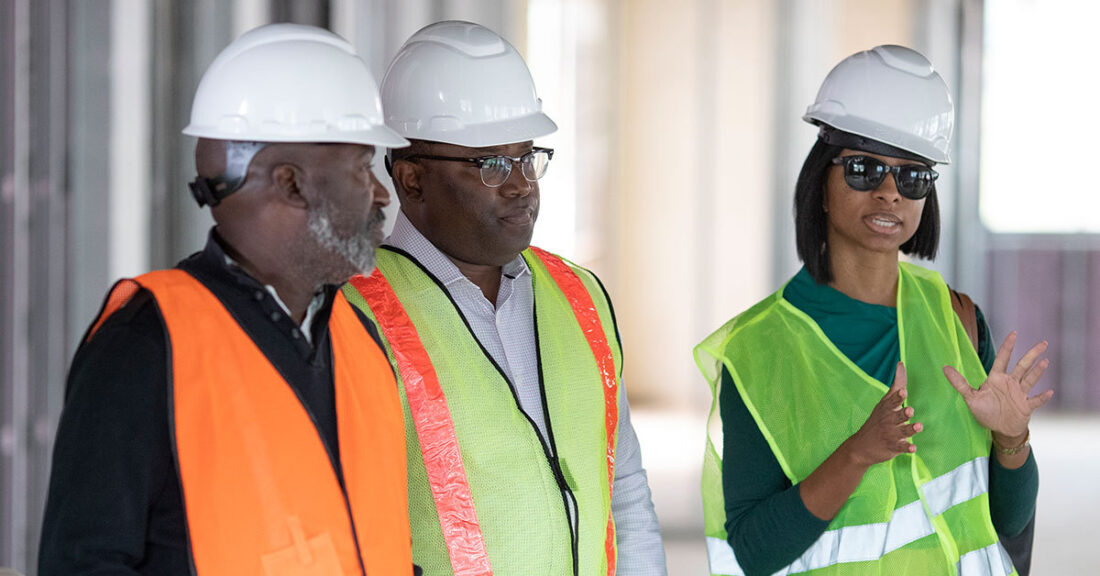Residents Shape Atlanta’s Pittsburgh Yards

Jason E. Miczek for the Casey Foundation
A new video showcases the critical role that community members have played in shaping the future of Pittsburgh Yards in Southwest Atlanta. Once complete, the 31-acre site will serve as a commercial, recreational and community anchor that offers living-wage employment as well as long-term career and entrepreneurship opportunities for residents in and around the city’s Neighborhood Planning Unit V.
“The Pittsburgh Yards project is a true game-changer,” says Jeanna Bailey, who has operated a business in nearby midtown Atlanta for over a decade. “The whole area is so underused and underserved.”
Residents in the area have taken the lead in shaping various aspects of the project through monthly engagement meetings, working groups, focus groups and other volunteer opportunities.
For example, they have:
- partnered with a local design firm, HUMINT, to develop a collection of color palettes, taglines and logos for the project’s marketing materials;
- helped identify a property management firm and local artists and craftspeople to execute multiple projects;
- developed a set of criteria for use of public greenspace at the site; and
- named several building spaces and streets, including The Nia Building, a 61,000-square-foot small business and maker hub. Nia, in Swahili, means purpose.
“Allowing people to be invested — and to witness and to be partners in something — builds a community’s confidence that change can happen,” says James Harris, a development partner on the project and the cofounder of The Core Venture Studio, a technology startup focused on cultivating entrepreneurial real estate environments in Atlanta.
Building small businesses and job opportunities
Also covered in the video: How Pittsburgh Yards — which is supported by the Annie E. Casey Foundation — is working to create jobs for residents and opportunities for small businesses.
For instance, the site is tapping a diverse range of workforce partners who are committed to hiring residents for secure, permanent and construction-related jobs. The project is also prioritizing businesses owned by women and people of color for subcontracting opportunities. Through mid-2019, more than 60% of construction contracts in Pittsburgh Yards’s first phase were awarded to firms owned by people of color.
Another example is The Nia Building, which will offer 101 leasable coworking spaces, conference spaces, an amphitheater and a shared-use construction workshop and kitchen.
“I think it’s a great dance between providing goods and services directly to the area but also providing jobs,” Bailey says of the project.
In late 2019, Invest Atlanta, the city’s economic development authority, announced the completion of its first Community Wealth Building Accelerator program and its graduating class of 21 local small business owners of color.
The program is one component of Accelerate Southside, an initiative supported by the Casey Foundation that aims to address challenges facing small businesses owned by people of color, offer technical assistance and support access to affordable real estate. The initiative also plans to provide down payment assistance for business owners of color who will move their operations into converted shipping containers at Pittsburgh Yards.
“I’m excited about Pittsburgh Yards coming up,” says Tamacia King, a resident in the area, “especially the incubators and opportunities for new small businesses to get off the ground.”





